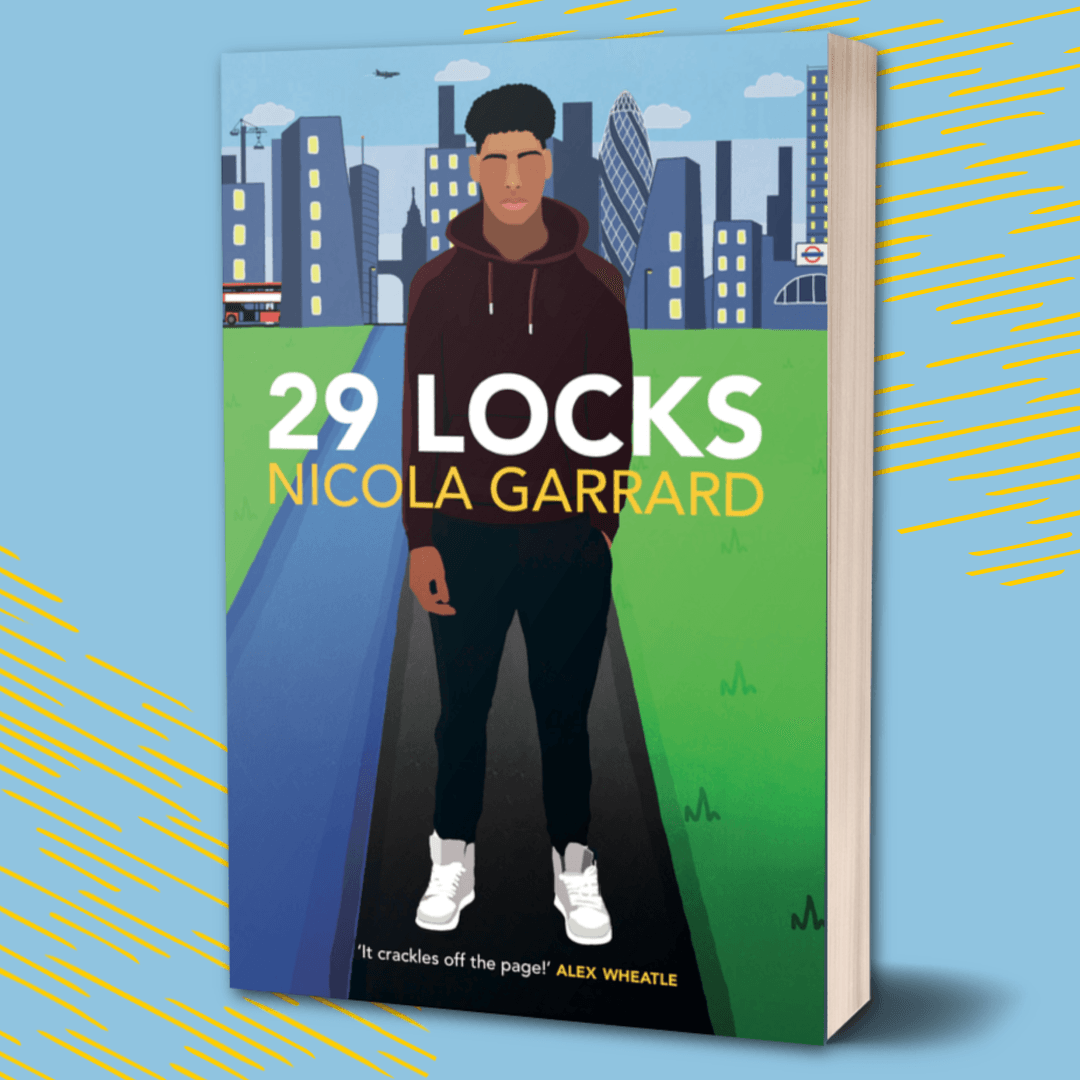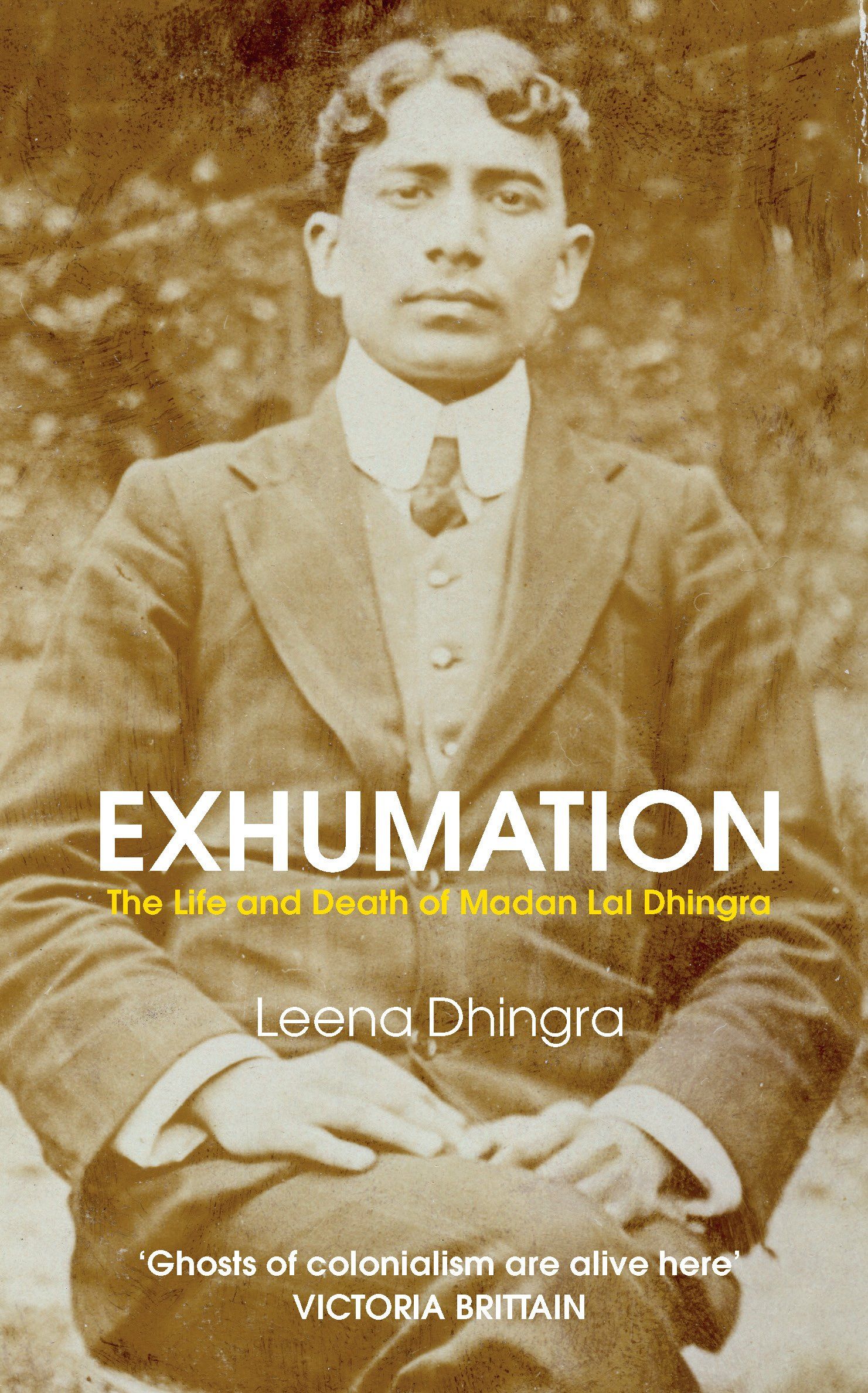Welcome to the HopeRoad Blog
Bringing you regular blog posts penned by our authors and editors.
Enjoy!
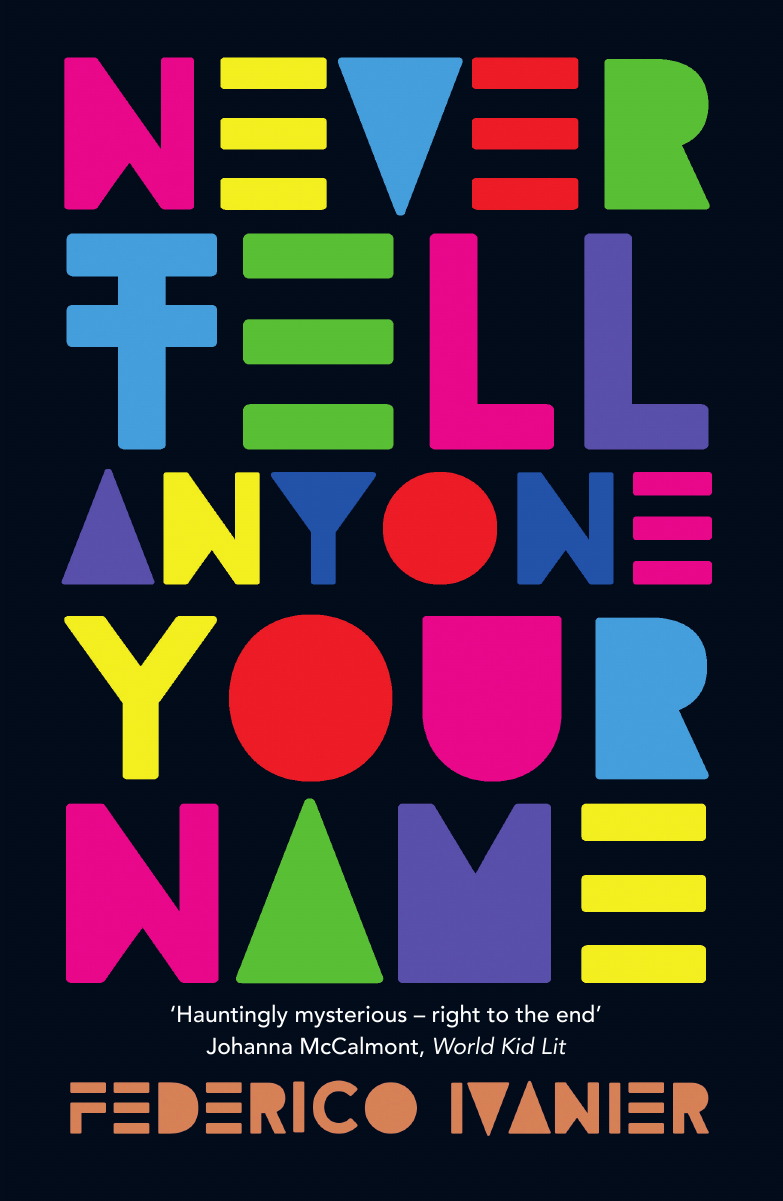
By Federico Ivanier
•
11 Oct, 2023
Sometimes people want to know where writers get ideas from. That question always gets me thinking. Where do I really get ideas from? I also ask writer friends the same. I get the impression, every time, that we don’t really know. It’s part of the mystery of writing. And it’s great that it is so. I don’t believe there’s a mechanism to get ideas. Or some kind of imaginary pond, where we can fish a silvery, slippery fish-idea. That would be great, since I would know, as a writer, that I definitely will get new ideas. Because, the truth is that, after I finish one book, I never know if I will write another one, if another idea will be good enough. There’s this unpredictability that writers have to deal with. Once you know, say, how to drive a car, you can drive any number of cars. Once you write a novel, it’s safe to say that it’s unclear whether or not you will be able to write another one. Or, at least, one that you (and publishers) think it’s worth publishing. I have come to think that somehow - maybe - the process is reverse. It’s not you getting ideas, but ideas getting to you. Argentinian writer/legend Julio Cortázar said that the stories that he wrote already existed and that his job as a writer was to turn them into language. So, it’s ideas that get you, not the other way around. That’s a funny way to think about it. It gives the impression that ideas are creatures that haunt or possess writers. At their own will, I might add. Which, of course, is the bothersome side of the deal. As for me, I find the idea both true and impossible at the same time. I am willing to accept that, within all that inexplicability of the appearance of the idea, there’s a part that is not up to the writer. That much I will admit. It doesn’t depend on how much you try to have an idea. It will come. Or it won’t. I would say ideas are, at least in my experience, a mixture of things. On the one hand, they are a state of mind. Let me explain. The very fact that you are in the world as a writer, that you never stop really working as one, or thinking as one, will arrange your mind in a certain way. You will perceive life not just of a set of experiences, but as a set of writing opportunities. For example: my girlfriend left me. I am devastated. It’s terrible. But wait a minute, surely I will be able to write about this at a certain point. That’s the great part of being a writer. You can use experiences to your advantage. If your mind is ready to think about the world in terms of story, you are ready to find it. That is, if your mind is searching (normally unconsciously), it’s bound to find something. That is very much the case with my novel Never Tell Anyone Your Name , beautifully translated by Claire Storey. The story came in a completely unpredicted manner. I was travelling with my then-girlfriend from Bordeaux to Madrid by train. In one point, we had to change from the French train to the Spanish train right on the border. When we were ready to get on our Spanish train, we discovered that the dates of our tickets were wrong: they were for the following day. Changing them for the train due to depart at four in the afternoon (the one we had plans to take) was impossible. It was the end of the holidays and the train was full. The best we could do was get a couple of tickets for the midnight service. So we were left with eight hours of nothing ahead of us. We were in a small town called Irún, which we had never intended to visit and my girlfriend certainly wasn’t interested in visiting. As for me, I was delighted. It was an unplanned event. It was a small event, all right, but unplanned. I decided to visit this place which was not precisely touristic. As I said before, my girlfriend was not really in, but it was worse to remain in the station, so we went. I knew, as soon as I was out, walking (it was a really cold day), that I was going to write about that. I didn’t know exactly what I was going to write, but I knew I would. That very moment was one that I was going to turn into some kind of story. I even took pictures, as we walked, to be able to remember the places we saw, the path we took. I was, already, in a way, taking notes. Of course, it was not that I had the idea ready just then. For here’s the second thing with ideas. When you read a great book, a great story, you are not reading just an idea. You are reading countless hours of hard work, of thinking about how that small idea at the beginning of the process would turn into a novel, for example. And here’s the other thing I wanted to mention: an idea is a process. You develop the idea in the drafts that you write, in the constant thinking about how the idea plays out. The idea is never a finished entity ꟷnot until you publish, I think. And, by then, it’s quite likely that the idea bears but a tiny resemblance to the book that you have. When you look at a tree and you look at the seed that originated it, when you compare them, they seem to be completely different things. And yet, they are the same. It took, in the case of my novel, more than ten years for the seed to become a tree. A decade for the idea to become a book. I didn’t work constantly on the idea. I mean, I didn’t turn on the computer and work on it all the time. But my brain did. Both consciously and unconsciously. That’s why, suddenly, there were a couple of days in particular where I felt I had had a breakthrough, a gigantic couple of steps where I had gained understanding of what the idea was. A gigantic step to see this thing that Cortázar mentioned: that the story existed. It was like entering a big room that’s dark, and you don’t get to see very well. But you start finding ways to illuminate it. You turn on some lights. And so you know. You see windows, furniture, paintings hanging on the walls. I think Henry James said something similar about writing characters. So, in the end, our relationship with ideas continues to be a mystery. Are they our own creation? Are they something waiting for us, if we are persistent enough? Are they some kind of coworker, of partner that the writer has to function with? I don’t know. I know I am paying attention. All the time. And I know, also, that, no matter what, I will persist. And, if I’m lucky, I will also prevail. Federico Ivanier
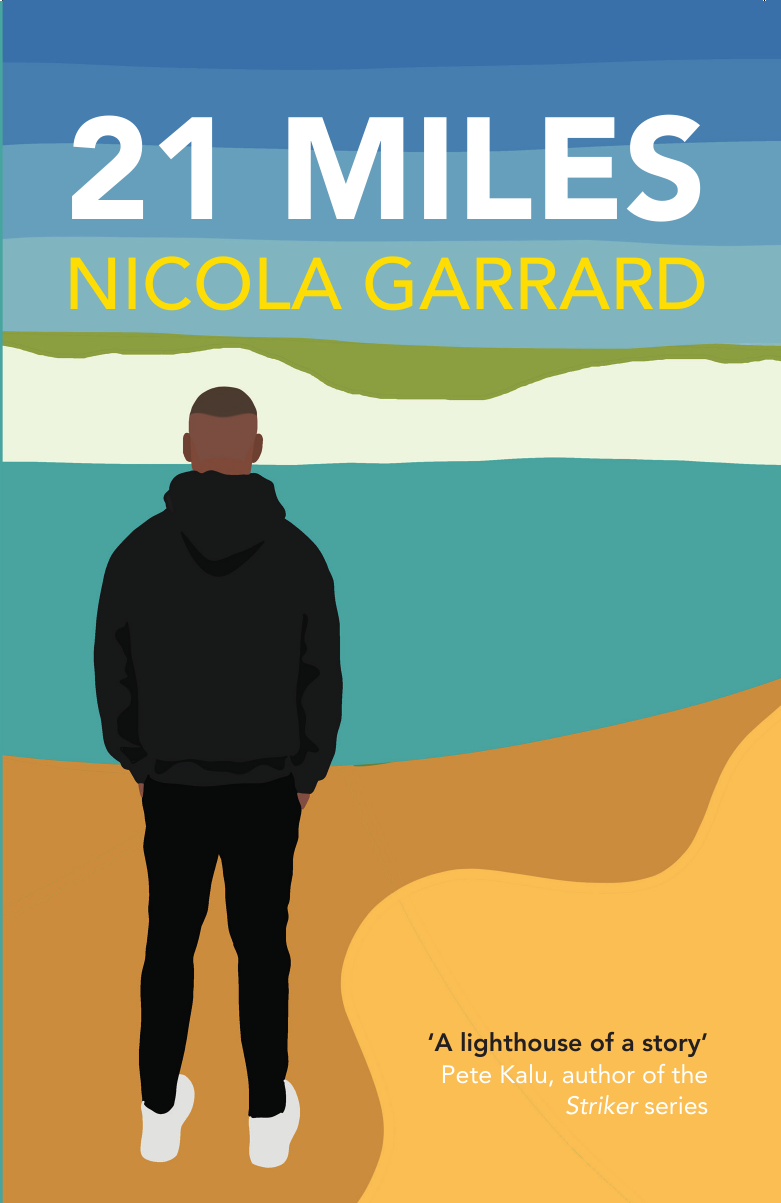
By Nicola Garrard
•
07 Sep, 2023
In 2014, I read a news article about the suffering of separated child refugees in Calais whose numbers had risen to nearly a thousand. I found it shameful that just twenty-one miles from the coast of Britain there were children and teenagers living in tents and makeshift shelters in the degrading cold, filth and disease of a refugee camp called ‘The Jungle’ and along the Pas-de-Calais coast. I started to collect donations of food and essential clothing with the help of other parents at my children’s primary school, teachers and students at the secondary school where I taught – (many of whom were themselves refugees or the children of refugees), and an Ethiopian restaurateur from South London whose teenage daughter had campaigned for period products to be given to women and girls in the French camps. Then I filled my small camper van to the roof and took the Eurotunnel car-train to Calais on a number of occasions. In Calais, I volunteered with a grassroots French refugee charity, distributing meals and spending time talking to young refugees. Sometimes these were unexpected conversations, like a discussion with a young Iranian about French revolutionary history, and with a young Syrian about Shakespeare’s plays in the camp’s library, ‘Jungle Books’. There was always the obligatory question of which football team you support and kickabouts happening all over the camp, bringing smiles to otherwise down-hearted young people. I also met many local French people who had resisted the far-right’s propaganda of fear and opened their own flats and homes to refugees to take showers, charge their mobile phones and share family meals. On one occasion, I met a small thirteen-year-old Eritrean girl in Calais who begged me to take her to England where she had family. Fearing for her safety, I desperately wanted to help her find her family - perhaps smuggling her on the Eurotunnel in one of the many hiding places my children loved in our camper van. I didn’t agree to take her. People-smuggling is against the law; I might have lost my career, been fined and sent to prison. We swapped phone numbers and promised to keep in touch. In the end, that was the right decision. As I was a known volunteer in Calais, the border authorities strip-searched my camper van as I returned home. My next visit was the last as the French government made it clear that UK aid volunteers were not welcome and were often refused entry. I am sure that a younger, more impulsive version of myself would not have thought twice about trying to help the girl I met. I often think about her and hope she found her family and safety; not long after we swapped numbers, her phone line went dead. Years later, I was left with the ‘what if’ of her request and it became this story. Since 29 Locks was published, readers often ask me what happens next to Donny. He remained so alive for me that I had been asking myself the same question. I decided to connect these two stories of dislocation, injustice and separation, and see how Donny would respond to meeting the young refugees who had made such an impression on me. Would his bravery, openness and sense of justice make a difference? And what could we learn from teenagers who have travelled across the world to find safety and family? Nicola Garrard West Sussex, 2023
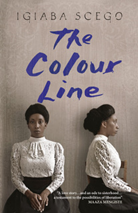
By Igiaba Scego
•
30 Aug, 2023
Salem, Massachusetts is the birthplace of illustrious figures, including writer Nathaniel Hawthorne. And for me the most important of these is Sarah Parker Remond, an obstetrician, human rights activist and feminist; a woman of great culture, a Black woman who sought freedom at a time when this was difficult for Black people (and for women), in the United States and elsewhere. Sarah was born in Salem and died in Rome on 13 December 1894, aged just 68, in a hospital that no longer exists, the Hospital of San Antonio. I heard Sarah’s story from a friend. I never imagined that such a talented and headstrong woman could have lived in and so loved the city of my birth. A Black, feminist woman. I remember looking closely at her photograph. There was Sarah - though I didn’t yet know her name - in a Victorian-style dress, plain and high-necked. I don’t know why, but I had the impression this was a woman who could assert herself when necessary. My friend gave me a quick rundown of what she knew of Sarah’s story. Her parents were activists, free Blacks from Salem and at the forefront against racism; educated people, well-read and committed. For days on end, I imagined this woman, who left the United States first for England and then Italy, roaming free and delighted in the streets of nineteenth-century Rome. I saw myself reflected in her as if in a mirror. And so, like a bloodhound, I began to follow her trail through the city. My friend Cristina had told me Sarah was buried in the Protestant cemetery, and I began to find myself there with increasing frequency, seemingly by chance. There’s nothing left of her now, except a plaque. But just knowing her name was there among all the others filled me with joy. It was at the cemetery that I first wondered whether Sarah Parker Remond knew Edmonia Lewis. She - Edmonia - was my other obsession. I’d read many books about her. Edmonia’s life was not a happy one… always short of money, growing tension with her patrons, the desire to take flight, Rome, financial hardship and, at last, success. Edmonia suffered greatly to make a name for herself, and she finally accomplished it. And when I saw the photo of Sarah, I asked myself whether these two free Black women had known each other in Rome, that brand new capital of the kingdom. And, in fact, their paths did cross. They met and they spoke together. When the well-known writer and activist Frederick Douglass visited Rome with his wife, they both met him. Edmonia was his official guide, and took the Douglass family walking through the streets of the city center. So even now the book’s finished, from time to time I dream of these three Black people - Edmonia, Sarah and Frederick - exploring Rome. Three Black Americans, three people whose determination changed the world, walking about the Eternal City. Happy and free. But for these two women - and this should be furiously emphasized - Rome also had extra significance. In the United States, both had been subjected to intense aggression. Edmonia had been beaten (and according to some biographies, raped too - but we know nothing for certain about this) outside the boarding school she attended, and Sarah was thrown down the stairs in a theatre during a play she was keen to watch. The theatre was packed, and Sarah was punished - like an ante litteram Rosa Parks - because she refused to give up her seat for a white person. She wanted to stay seated: it was her right to do so, she had paid just like everyone else. So she did not move from her place. When I found out that in the nineteenth century two women (Black women, what’s more) had chosen Italy as their place of freedom, I was so moved that my eyes literally filled with tears. Italy rhymed with welcome, dreams, opportunities, not hate. And these two women were travelers, Black women who journeyed across oceans (the same ocean that had seen so many Black people in shackles) and cities. Black women whose bodies had torched borders and prejudices. And it was inevitable that during the conception of the novel and its writing, I would think about what was happening in the present day in the Mediterranean, between Europe and Africa. People dying on boats or in Libyan detention camps, people denied visas, denied legal travel with a passport and a suitcase. The idea of a Rome that allowed women to be free is the image that helped me to write this book. All the women in the story, to a greater or lesser extent, are struggling against a patriarchal system that’s crushing them. Love is impossible without freedom, my protagonists believe. And they get by as best they can. Some fight to love men, others to love women; others embrace a solitude that’s chosen. Igiaba Scego Rome, 2023
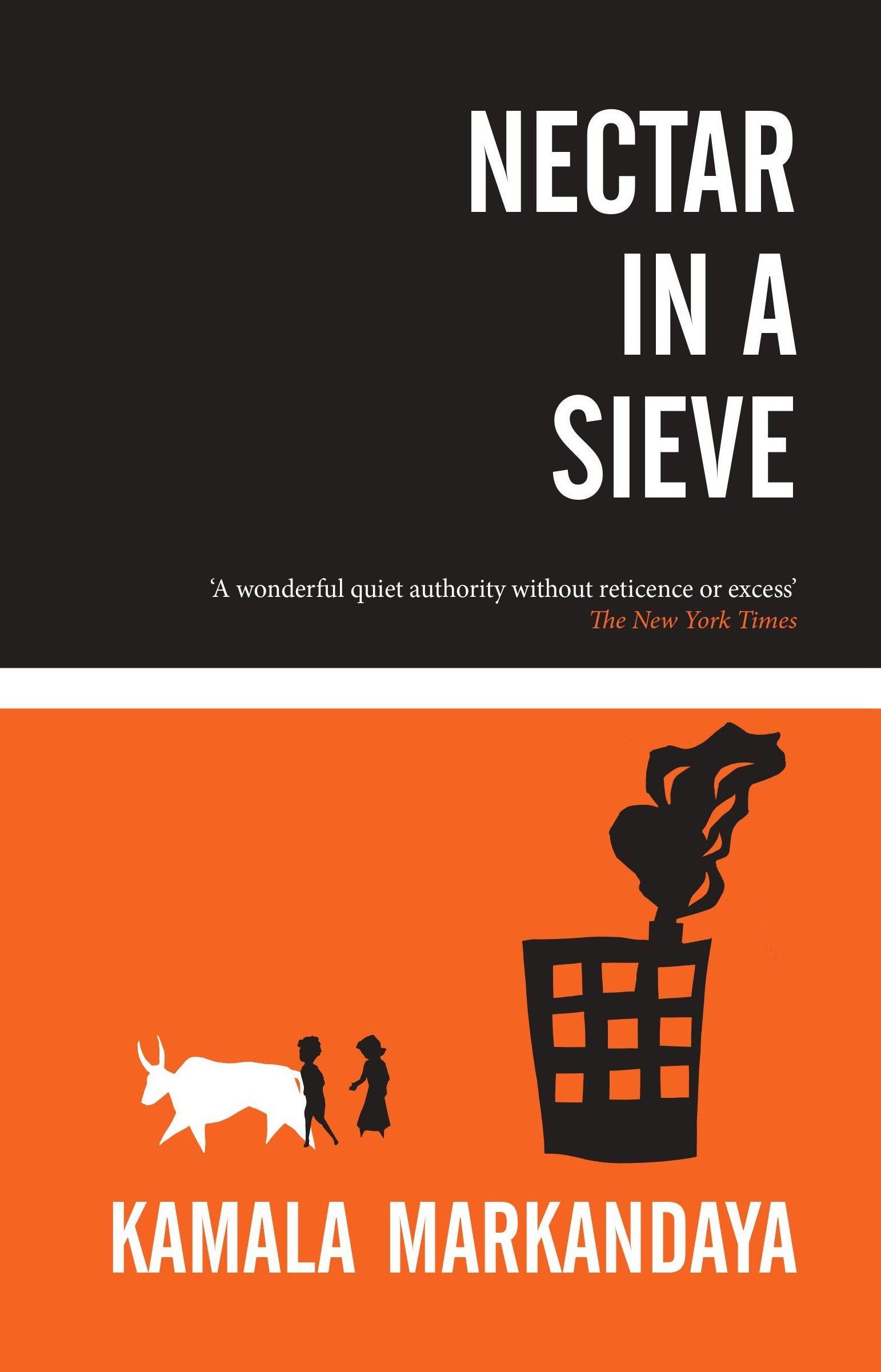
By support
•
03 Jul, 2023
I’m so happy that my mother’s incisive, beautiful books are being rediscovered by a whole new generation. As well as being her daughter, I am her literary executor. And so it felt very timely to be discussing her writing at the Jaipur Literary Festival at the British Library last month as we approach the 100th anniversary of her birth next year. Internationally acclaimed, her work fell out of print towards the end of her life, and with the republication of Nectar in a Sieve by Small Axes, her astonishing first novel, her novels are now reaching the status of classics. Please do join us in celebrating the enduring appeal and legacy of Kamala Markandaya’s work. Nectar in a Sieve was the first novel written by my mother, the Indian novelist Kamala Markandaya. It was originally published in 1954 in London, the city my mother had moved to in 1948, and it received instant acclaim. It was swiftly bought by the American publisher, John Day, and was then selected by the Book-of-the-Month Club, a prestigious honour guaranteeing sales – and fame. Her book was translated into seventeen languages. It is still taught in schools and colleges in India and the USA – a remarkable achievement after seventy years. I’m delighted that HopeRoad are now republishing it in the UK. Reviews at the time of first publication were ecstatic. ‘A novel to retain in your heart’, sighed the Milwaukee Journal . The New York Times thought that ‘Nectar in a Sieve has a wonderful quiet authority’. To quote Penguin India’s Modern Classics edition: ‘Few novels ever published have celebrated the human spirit, its sheer resilience, with greater success.’ All true, I think. The central love story of the novel, the love of Rukmani and Nathan, which survives many tests and endures to the end of life, is deeply moving. Nectar in a Sieve was published seven years after India gained independence. India had been a British colony for three hundred years, ruled by a British administration with puppet maharajahs concerned with enriching themselves. The large rural population had few resources to tide them over difficult times; simply surviving occupied their time, while the wealth of their country drained away to Britain. Central to 20th-century history was Mahatma Gandhi who rose up against this oppression. He had the support of the people, and in 1947 the long British occupation came to an end. To my mother’s generation this struggle was at the centre of their lives. It was acknowledged among the leading writers of the time that what they should depict in their work was the lives of India’s poorest people. Markandaya tackled this head-on, basing her book on her close observations of rural life in the country where she had grown up. She gives a voice, not just to a peasant, but to a peasant woman – an unheard voice. She shows Rukmani happy in her own life, loving her husband and children and responsible towards them; sensitive to the rich natural environment around her as she tends her crops; literate, uniquely among her peers; spirited, and yet so vulnerable to the vicissitudes of life, because she is completely dependent on the forces of nature, and other human beings, perhaps hostile. If the harvest is bad, the family will go hungry, as they have little spare money and no help. If their land is repossessed, they will have nowhere to grow food and no source of income. Markandaya writes with a fluid, polished, gentle style that disguises her hard-punching message. In the background of the novel is the knowledge that India is about to change: a lifestyle of poverty and acceptance that has gone on for centuries is about to be invaded by the modern world bringing with it the onslaught of capitalism. And Rukmani’s children are angry… The novel is such a page-turner, you can’t stop reading it, for the bittersweet, tragic story, the beautiful descriptions of the Indian countryside, and the remarkable evocation of life in an Indian village seventy years ago. Kim Oliver June 2023
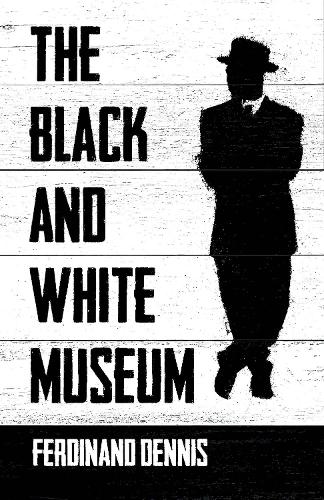
By support
•
01 Jun, 2023
In my early teens I became aware of a strange phenomenon in my neighbourhood. On the August bank holiday, groups of Caribbean women could be seen walking in the middle of the road to some unknown destination. Always colourfully dressed, they tended to be Dominican or St Lucian and chatted away in French patois, which was incomprehensible to me, a Jamaican, but recognisable because I lived next door to a Dominican family. These people were, I learned eventually, heading to Ladbroke Grove. Soon I too joined the annual pilgrimage to the Carnival in the Grove, now universally known as the Notting Hill Carnival. On the 75th Windrush anniversary, the extraordinary event that is the Notting Hill Carnival, will, I hope, be accorded the recognition it deserves as one of the greatest gifts to Britain by the Windrush generation. Like many early carnival goers, I probably found the event attractive because, as a member of a racial minority, it gave me an opportunity to be in the majority, if only for a day. But it was clearly a majority with some deep-rooted grievances, the spontaneous expression of which gave the event an unpromising future. I remember being trapped beside a sound system in the shadow of the Westway flyover watching dreadlocked black youths throwing bricks at a line of policemen while dub music, or Burning Spear bellowing in his hoarse voice ‘Do you remember the days of slavery?’ issued from a twelve-foot-high wall of huge speakers. Given that many British institutions have in recent years expressed recognition of, and regret for, their involvement in the transatlantic slave trade and slavery, the sound systems, Rastafarians and reggae musicians were clearly ahead of their time. Their 1970s message should be included on any list of Windrush legacies. Carnival continued to be unpredictable and combustible into the 1980s, but it also became more popular, drawing participants from far and wide. As its complexion changed, I came to appreciate its unique creativity, which can only grow bolder and more imaginative with greater sponsorship. The art of carnival, as the Brazil and Trinidad carnival have shown, is inexhaustibly rich. This year I will probably be even more appreciative of the Notting Hill Carnival as a celebration not of race but of a vibrant multicultural Britain, a nation of cultural diversity most visible in major cities, the effect of post-Second World War immigration. Britain has seen several spectacles in recent years: Queen Elizabeth’s jubilee and, most moving, funeral, and King Charles’s coronation. Staged in Britain’s inimitable grand style, these royal events, though far more inclusive than they have ever been, nevertheless reinforced an unchanging elitism, the inevitable result of any form of royalty. The Notting Hill Carnival offers a different kind of spectacle. It’s a collective celebration that brings millions of visitors to the streets over two days. At carnival all participants are equal and, in the spirit of playing mas, even the most ordinary men and women can be crowned kings or queens for the day. And that perhaps is the Windrush’s greatest legacy as expressed through carnival: the power of the human imagination to free ourselves from the rusty chains of tradition. Ferdinand Dennis London 2023
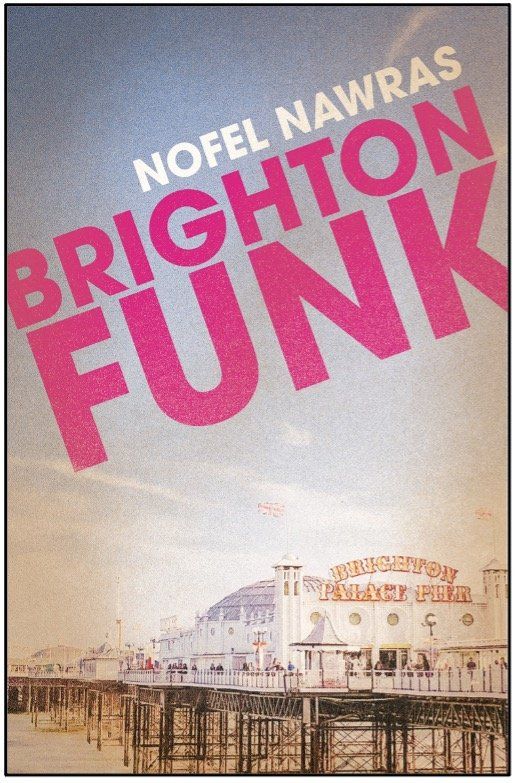
By Nofel Nawras
•
24 Mar, 2022
I’m always astonished by the fact that books ever get written. How is it done? How does anyone write a book? The process seems impossible. An enterprise beyond my comprehension. It fascinates and frightens me because it appears so alien. The mere idea of putting pen to paper is a psychological mountain that is utterly petrifying. I once had a dream where I stood a few inches before a shiny building. It wasn’t a normal building. It emanated power, mystery, an impossible aura of impenetrability. It appeared to be made of a dynamic, living material. I was aware of an awful dread within me. There was something I needed to do. Something I had to do. I had to look up. Such a simple thing. All I had to do was will the muscles in my neck to raise my head. Try as I might I, couldn’t do it. My neck shook with terror at the mere idea of doing so. A black nausea accompanied my efforts and yet I persisted. I managed to go against an unspeakable force exerted by this monolith for an iota of a second. What I saw vaporised my soul. This thing, before me, went up forever. I have the same dread with writing. Yet I have to do it. I have to look up. My love of writing is old and new. I often feel like I’m a fraud, a charlatan, an imposter and yet, as the prophet in Ecclesiastes reminds me: What has been will be again, what has been done will be done again; there is nothing new under the sun. I’m beginning to see writing as if I were a child again. I’m about six or seven, playing with friends in a lovely garden that has swings, roundabouts, slides. Of course, it’s a sunny summer’s day and I have the wonderful knowledge that I’m safe, loved. There is in me no sense of time, no anguish at its passing. From the garden, there are many paths that lead off into woods, forests, mountains. Paths that may lead to all sorts of adventures. I have an idea that writing is mystery. Not the mystery of a good whodunnit, the twists and turns of a thriller, the reasons why we fall in love with this person and not that one, the journey of an innocent child to a dictator, or a lonely, unloved man, or woman in a care home. The mystery is not what we write, but that we can. That we share something that it is universal. Not a particular piece of writing, but the idea of writing itself. Of course, how, and what we share depends on so many other things that are equally as imponderable. It’s one of those paths from the magic garden that can lead to a monumental headache. One of the things I remember from university was the oft stated dictum that one can’t teach another how to write well. The nuts and bolts are there for all of us and perhaps, simple enough, although I’ve heard many people attest that English is one of the hardest languages to learn. So what did my university tutors mean? Is there no Way to learn how to write well? Perhaps my old friend, Seng-t’san, the third Zen patriarch, might be of help: Words! The Way is beyond language, for in it there is no yesterday no tomorrow no today I think he means you simply have to do it, one way or another. You have to look up! Nofel Nawras Cornwall 2022
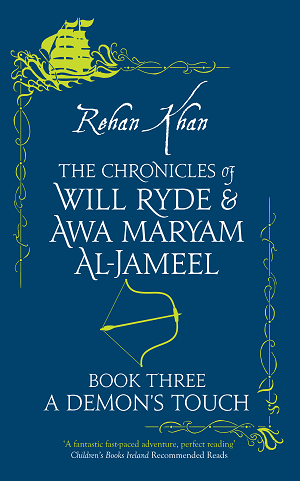
By Rehan Khan
•
24 Feb, 2022
Writing a third novel in a trilogy is always problematic for the author. Will the new novel hit the heights of the previous two, will it dip and fizzle out in the opinion of the readers? Endings are after all more memorable than beginnings. When we take a car journey, if we encounter traffic at the start of the journey, but the remainder, particularly the end of the journey goes smoothly, we consider it an effortless trip. If the reverse happens, we start smoothly, but get snarled up in traffic at the end, our opinion is shaped by the ending and so we regard it an arduous journey. Novels and films are like this as well. No matter, how well they start, if the storytelling deteriorates as the reader immerses themselves in the world, it’s likely they will be left with a negative impression upon finishing the story. In fact, they may even hark back with some level of nostalgia to the opening of the novel, and wish the author maintained the same level of quality. Fortunately, the writing process for a third novel in a trilogy is simpler at the level of the setting. We know where the story is taking place, the time period, the politics of the world, the social norms of it, who has power, who seeks it, and so on. In other words, the landscape upon which our tale is told, is known to the reader. The writer will introduce new locations but overall there is a degree of familiarity. It’s also simpler at the level of the characters, since we know who they are, what they desire, their characteristics and quirks, and most importantly their true character, who they really are on the inside, since we would have seen them placed under pressure. True character is only revealed when we place our characters under pressure. It’s the same in life as well, if everything is smooth sailing, you don’t really find out about a person. But when the chips are down, and it’s hard times, peoples true character surfaces. However, what is more complex in a third novel is maintaining the integrity of the plot. In the first two novels, the writer would have created a number of plot lines, sub-plots, plots-within-plots. Yet in the third book, these need to be drawn together and resolved for the reader. This requires the writer to forensically go back across the previous two books, identify all of the loose ends, and conclude them in a manner that the reader is not left wondering what happened to such and such character, or the threat which didn’t materialize. I am hoping in A Demon’s Touch I have suitably concluded the various plot strands and tied them together to the satisfaction of the reader. Across the three novels, A Tudor Turk, A King’s Armour, A Demon’s Touch, some of the themes which I have embedded within the plot, are to do with how we read history, how diverse individuals come together to solve common problems, and identifying narratives which unite cultures. When it comes to how we read history, many in the West are surprised to learn that Tudor England was not even on the map of the great Mediterranean powers, such as the Ottomans. Equally West Africa, under the Songhai, where one of our protagonists, Awa, comes from, was a literate, cultural milieu of thinkers, artisans and traders. It produced scholars and scientists, who were far ahead of anything in the West at the time. With regards using diversity as a strength to solve human problems, the fictional Rüzgar unit, within the Janissaries, provide an example of how individuals from diverse regions (England, Bosnia, Greece, Turkey, Mali) and faiths (Jewish, Christian, Muslim) can work together for the common good. Finally, when it comes to common narratives across cultures, this relates to how the interconnectedness of ideas flows across communities, tribes and nations, and demonstrates that all ideas have origins, and often they come from people not from the part of the world in which we might reside. As a result, there is a certain gratitude we should show to the other and acknowledge this debt. If you would like to explore further themes and ideas from the A Tudor Turk trilogy in a book club or school reading group, then you can download a guide from the following link: https://www.rehankhan.com/resources In the meantime, I hope you have the opportunity to engage with Will, Awa and the multicultural cast of characters from the sixteenth century, as they undertake their swashbuckling adventures from England to Azerbaijan and many other memorable places in between. Rehan Khan Dubai February 2022
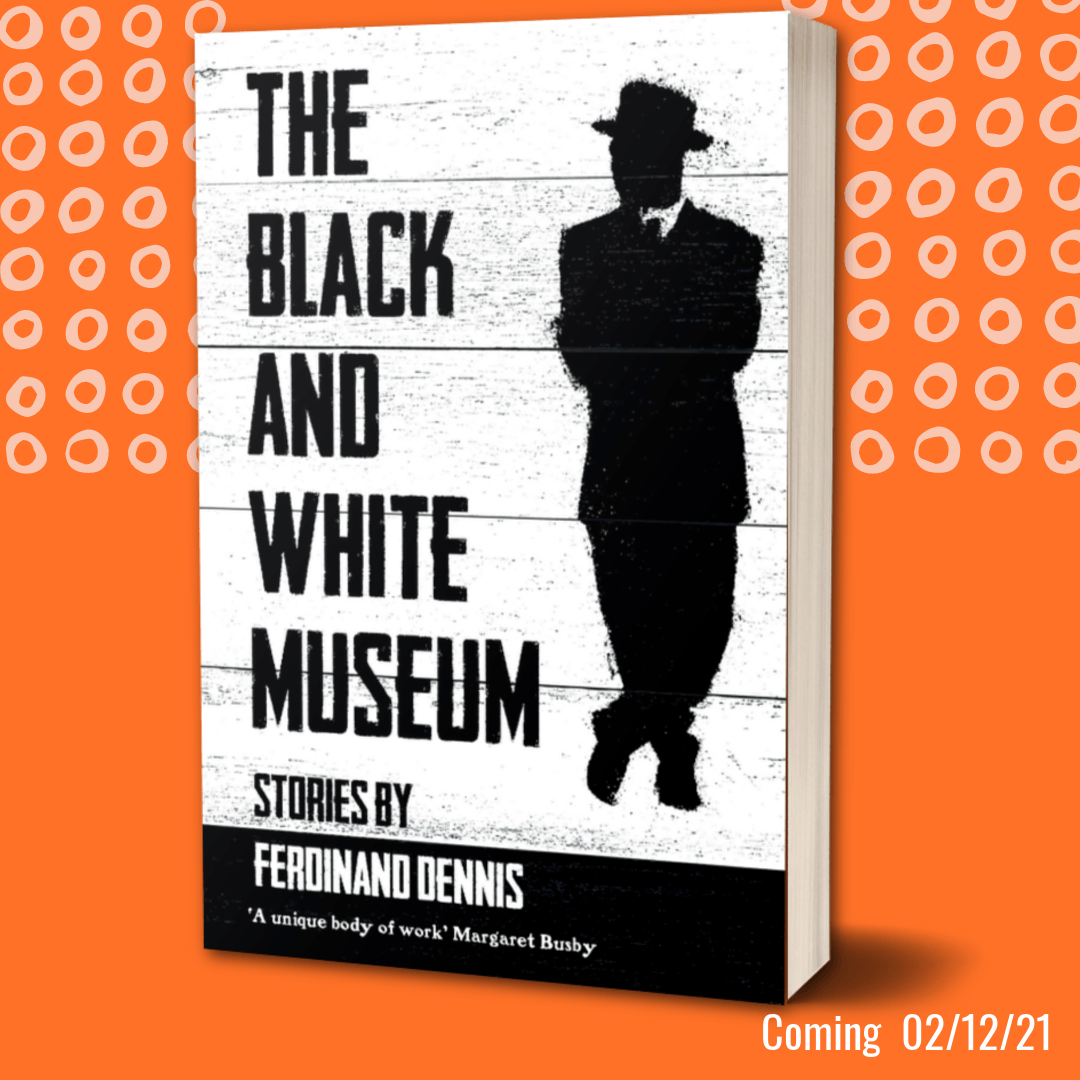
By Ferdinand Dennis
•
25 Nov, 2021
In late September the taxi I was travelling in got stuck in traffic on Putney Bridge. It was the third traffic jam I had experienced within a week. As the vehicle inched across Putney Bridge, the sky cloudless and pale blue, the strong early Autumn sunlight playing on the surface of the river Thames, I sought comfort from this latest, if inconvenient, sign of London’s ongoing recovery from the Covid-19 pandemic. Not all Londoners, I am sure, welcome the return of normal urban life with its many and various frustrations: traffic noise and air pollution, packed tube carriages, overcrowded pavements with impatient and at times belligerent pedestrians jostling for space. Those Londoners will no doubt miss the mornings when birdsongs could be heard in the otherwise eerie silence of a city in lockdown. I also enjoyed the novelty of hearing this natural matutinal music, but I am unlikely to miss it. My most uplifting aural pandemic experience began with the sound of a rubber ball smashing into a metal grille, followed by the screams and laughter of primary school children playing during their lunch break. That was back in early March. Silent and empty during the bleak Winter months of lockdown, the school playground was, as the equinox neared, the source of an explosive, raucous, inspirational music; the future re-awakened. Since then I have become more aware of the slow, inexorable increase in the volume of the urban thrum. And how wonderful to hear the screech of rubber on asphalt, the discordant blasts of car horns renting the air, the throbbing bass lines from a passing car, the distant roar of football supporters celebrating a goal (I live near a football stadium), the babel of languages on the streets and in shopping arcades. One unexpected benefit of lockdown is that the street drugs users in my neighbourhood seem to have disappeared. Before the pandemic my nights were sometimes disturbed by a gang of crack users who thought that a nearby wall, or my doorway on rainy nights, was an ideal place to gather while sharing spliffs, crack pipes or whatever pills they had been able to secure. Complaints from myself or my neighbours only ever brought a temporary respite. A whole year has passed without encountering them. My local park has also almost returned to normal. At the height of the pandemic, when lockdown closed offices and other workplaces, a walk in the park became a hazardous exercise. The narrow footpaths were crowded with walkers, children and the elderly, cyclists, roller skaters, all moving at different speeds in an effort to maintain some semblance of physical fitness. At its busiest the park seemed like the site of some mass religious ritual that required pilgrims to circle the green space, worshippers of some deity, wrathful and chthonic. Now, with many people having returned to work, it’s possible to again enjoy an early morning or afternoon stroll in the park, a simple pleasure, but one without which city life would be so much poorer. Ferdinand Dennis London, 2021
